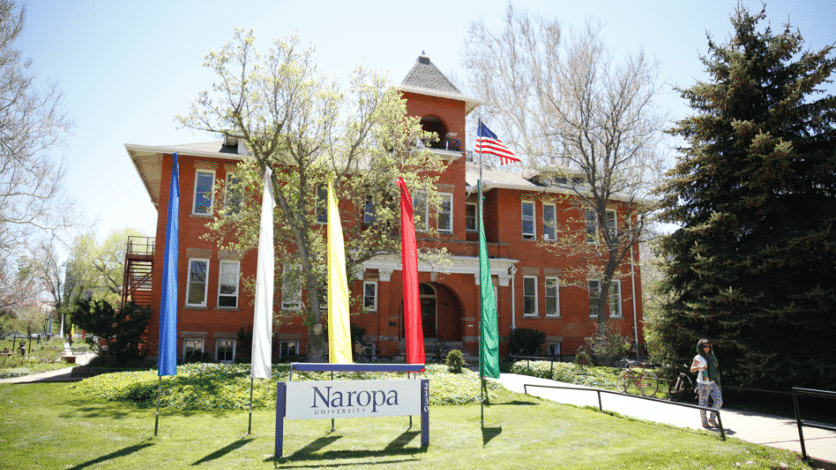
Naropa University will sell its main campus after calling the 2130 Arapahoe property home for four decades, the university announced in an email Aug. 15, just five years after selling its 30th Street Paramita campus and months after announcing it would sell its associated preschool.
“We recognize the profound value and importance that the land, which has been home to Naropa University for several decades, holds for many of us,” the email from the president’s office to the university community read. “We now need to balance that with the opportunity to create a significant fund for investment in Naropa’s future.”
The private liberal arts university doesn’t anticipate leaving campus before June 2027, according to the email.
Naropa has a buyer for the space, President Chuck Lief told Boulder Weekly, but the buyer will not be public for another several weeks due to a contractual agreement. Lief said he could not share the dollar amount, but that it was “significant.”
“For a school of our size, it’s a lot of money,” he said. “This will not just sort of nibble around the edges. We’ll be able to actually do some significant investing — whatever that looks like.”
There were four potential “deep-pocket buyers” and the buyer was selected in part due to “mission alignment,” Lief said.
“Anybody building here is going to build something that’s residential,” he said. “I don’t think there’s any question about that.”
As far as the brick-and-mortar future of the university, the Nalanda campus at 6287 Arapahoe Ave. will remain open, but Lief said it’s unlikely the university would purchase or build a new building (though he likely won’t be president by the time those decisions are officially made — he plans to retire in the summer of 2026).
More than 40% of students and “a significant portion of staff and faculty” are operating in hybrid and virtual spaces, according to the university’s email. Lief also said the property, which sits in a floodplain is “a very difficult piece of land to own.”
“If you don’t have something like a housing development or something which is generating much more money than our buildings do, you can’t afford to do anything,” he said.
Money tied up in owning and maintaining real estate, he said, is “money that we can’t invest in either compensation for faculty and staff, or it’s money that we have to, at least in part, ask students for in the form of tuition.”
Last year, Naropa students saw a 5% tuition increase, the first bump in four years.
About 1,080 students are enrolled in BA or MA programs at Naropa this school year, according to Lief, an increase of about 9% from the previous year. That doesn’t count certificate programs or post-graduate programs, like the school’s psychedelic-assisted therapies program.
The email said the sale will “ensure the long-term financial health sustainability” of the university.
Earlier this year, Naropa announced it would sell its associated preschool, Alaya. Parents, teachers and other supporters known as Friends of Alaya wishing to save the school now have until June 2025 to raise the $2.2 million needed to purchase it.
The university is launching community town halls this semester “to improve campus communication.” The meetings will be Wednesdays from noon to 1:30 p.m., kicking off Sept. 11, The first town hall will include “a discussion of the sale and next steps to keep our community informed.”
